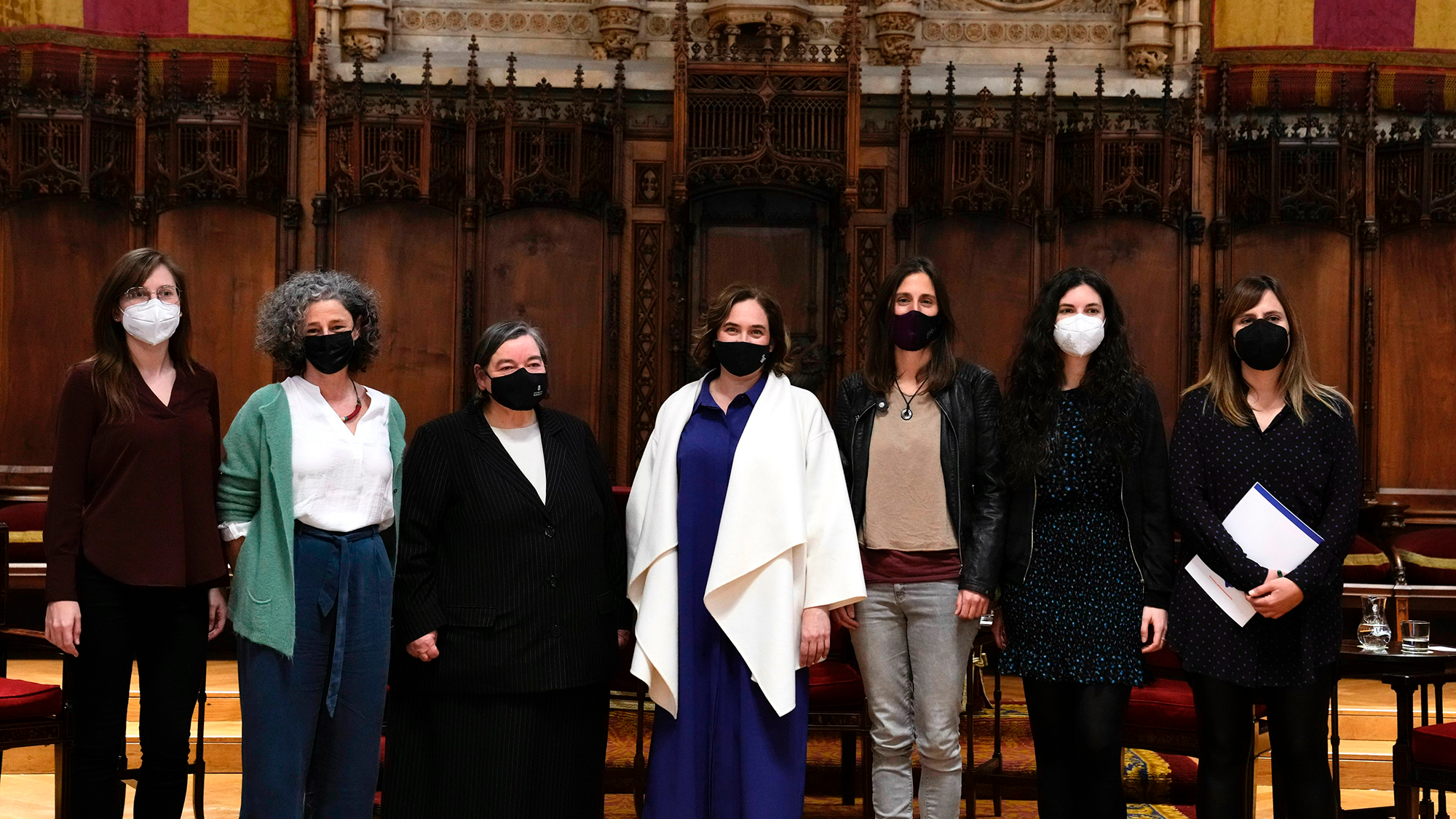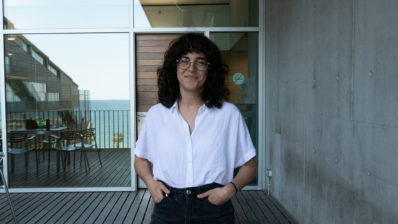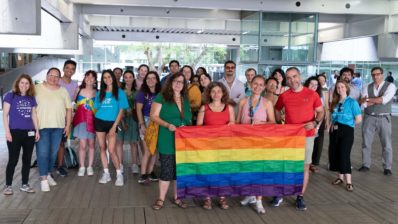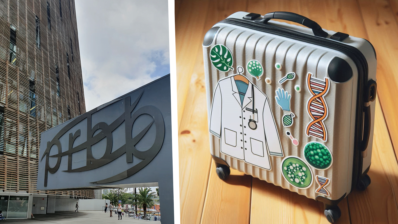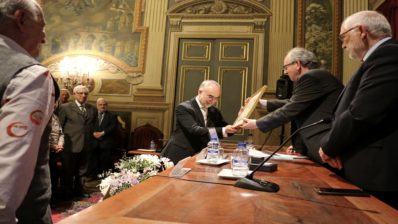Barcelona claims to be a scientific capital and a feminist city. In this context, the Barcelona City Council has just finished a study to find out the situation of discrimination against women in science and in the academic field in the city. The results can be found in the report “Women and science in Barcelona. A qualitative analysis of the factors that influence the trajectory of female researchers”, which was presented at the Saló de Cent on February 11.
Natàlia Vilor-Tejedor is a postdoctoral researcher in Neurogenetics at the Center for Genomic Regulation (CRG) and at the Barcelona Beta Brain Research Center who participated in a round table to discuss the conclusions and recommendations of this study. The young scientist tells us about this event whose objective was, in the words of Mayor Ada Colau “not only to make visible, but to vindicate all the female talent that we have in the field of science, which is needed to face the challenges that we have as a country and as humanity”.
“Women are out there; the problem is that we don’t reach places of decision. This leads to a masculinized academic culture”
Ada Colau, mayor of Barcelona
Below you can read the chronicle of the event by Natalia Vilor-Tejedor.
On February 11, at the Barcelona City Council, I was able to attend the presentation of the report on Women and Science in Barcelona, done with the support of Barcelona Science and the Barcelona City Council. The report includes a qualitative analysis of the factors that currently affect the trajectory of female researchers in the city.
This day was marked by a previous colloquium with representatives of the city council and the city of Barcelona, as well as a round table with the researchers Carme Junyent, Eva Anduiza, Alba Cervera and myself, where we were able to debate, together with the journalist Núria Jar, about the results presented in this report.
All of us valued the fact that the public institutions gave us this space-time dedicated to this topic, and that we are given this voice to promote citizen awareness about gender inequalities in science. Because to promote a scientific city and environment, it is necessary to promote and educate society in a knowledge that overcomes the historical inequalities between men and women. For this reason, we also agreed that references, visibility and constant awareness are needed to build long-term strategies that bring us ever closer to equality and equity.
“It is important that we are given a voice to promote public awareness of gender inequalities in science: references and visibility are essential”
Natalia Vilor-Tejedor
Unfortunately, neither me nor none of my colleagues were surprised by the results obtained in the report. But we appreciated the effort to make these inequalities visible and public in the form of data. Although it was commented that the statistics presented also suggested a slight positive trend of change – for example, an increase in the number of women permanently hired among PDI (teaching and research staff) and a reduction in the glass ceiling index -, it is evident that we have a long way to go to get an active social conscience. Indeed, the data also showed an important segregation by gender, evidencing the existence of factors that hinder the advancement of our scientific careers.
We also discussed about the need for other types of models in science, leaving behind the “masculinized academic culture”, and may I add, leaving behind science marked by a stereotyped attribution of competences based on a binary gender model. This leads us to an absolute need to be able to count on a wide presence of past referents, but above all of present referents. I reiterate, from a personal point of view, how important and relevant the day-to-day proximity of women who are references has been for me to be where I am now.
At the same time, and as was also mentioned in the colloquium, as a group affected by these inequalities, we women are always at the forefront, making the cause visible. However, we must bear in mind that we need an awareness of the entire population and this implies, without a doubt, an involvement of our male colleagues. It is not only necessary to make girls see that they can do science and that they have a lot to say, but it is also necessary to generate role models among male colleagues who respect and value this fairness and equality. Surely, a boy who has these references will respect and value her classmates and this will also contribute to reversing daily practices and stereotypes that still contribute to existing inequalities.
“An awareness of the entire population is necessary; and that implies the involvement of our fellow men”
Personally, I felt very grateful for the opportunity to express my thoughts and opinions, and with great responsibility to represent my fellow female scientists in the event. I would like to thank all of them, all my female colleagues and role models, who not only on February 11, but day after day and year after year, invest the time, dedication and enthusiasm in organizing activities to raise awareness about women in science. The future of science lies in fostering models outside of stereotypes and independent of gender, with respect, where the person is the one that matters.
You can see the event in this video (in Catalan).

